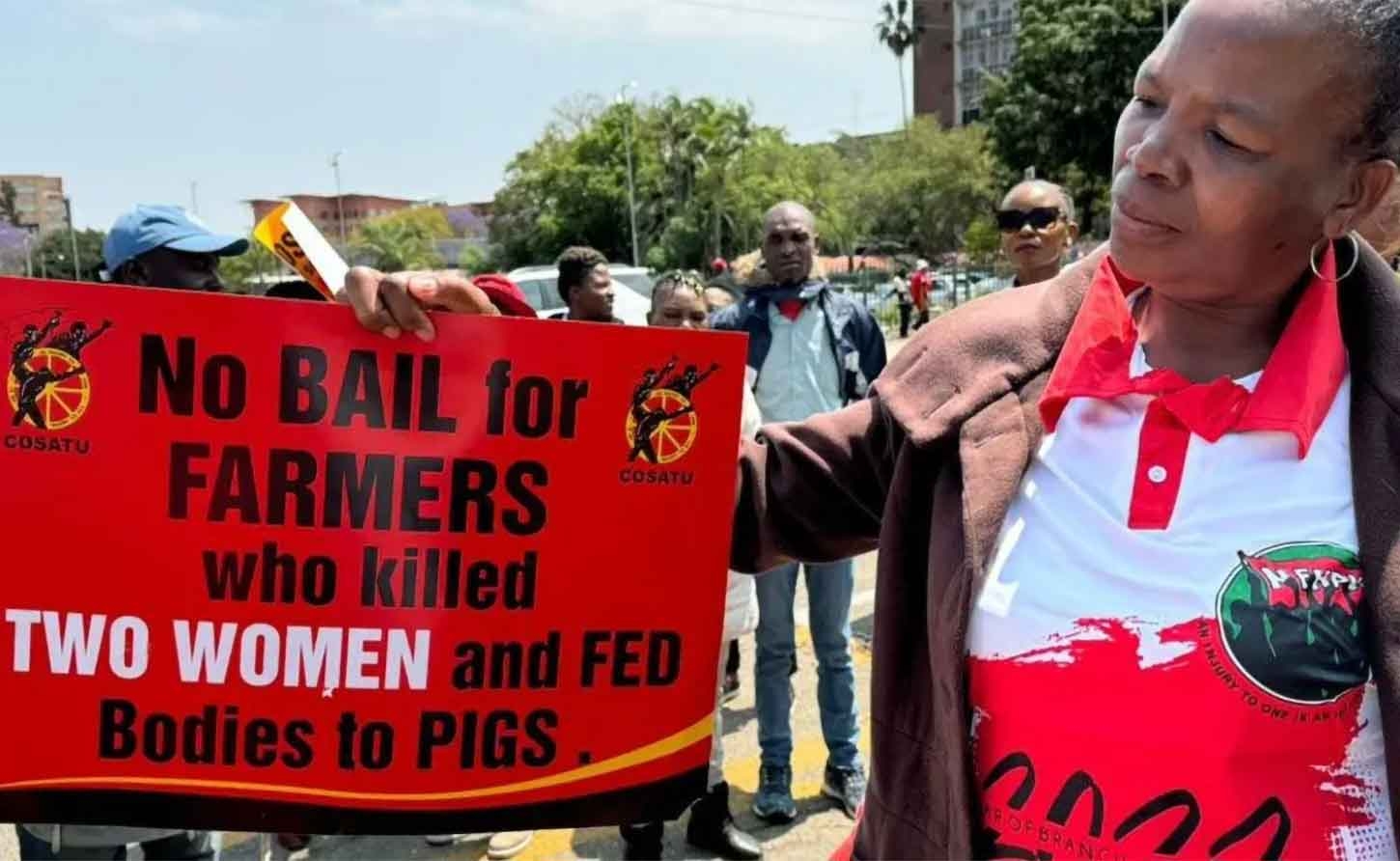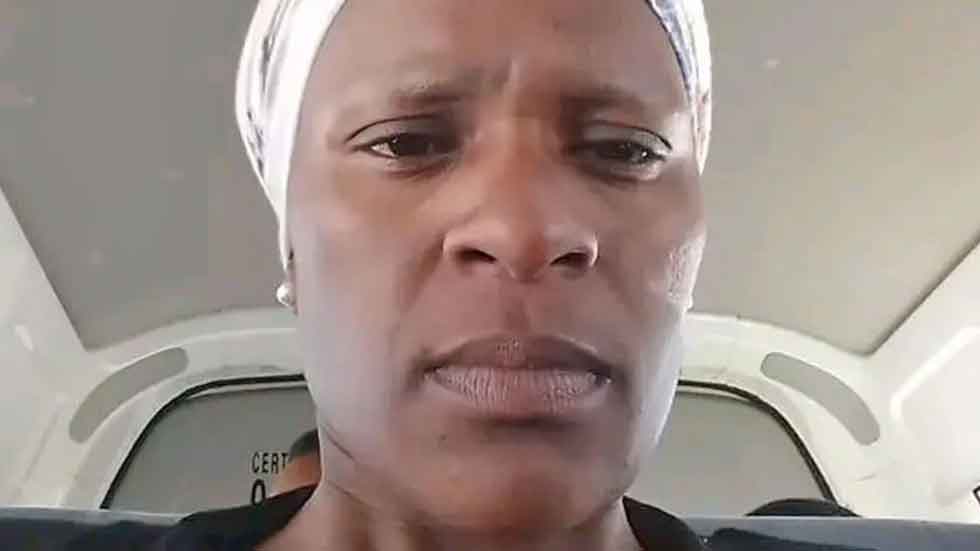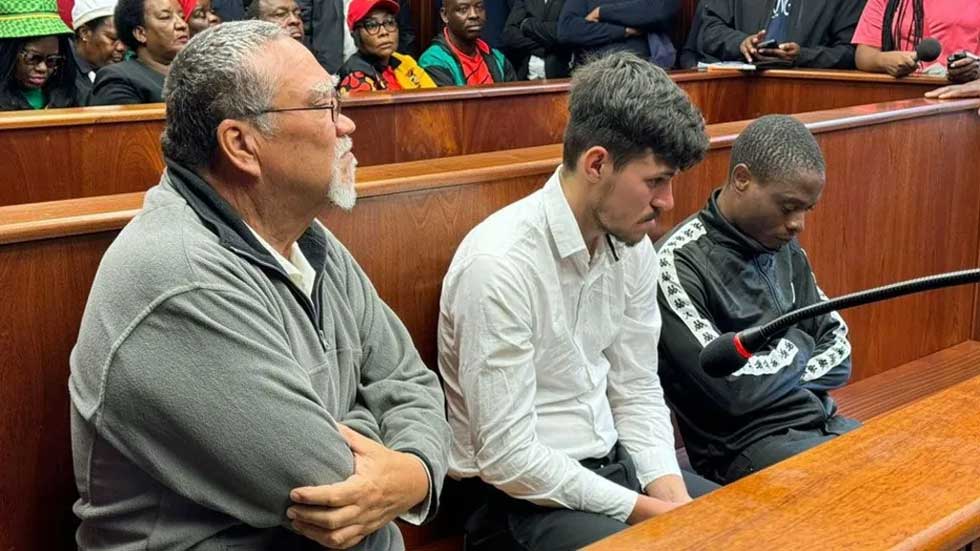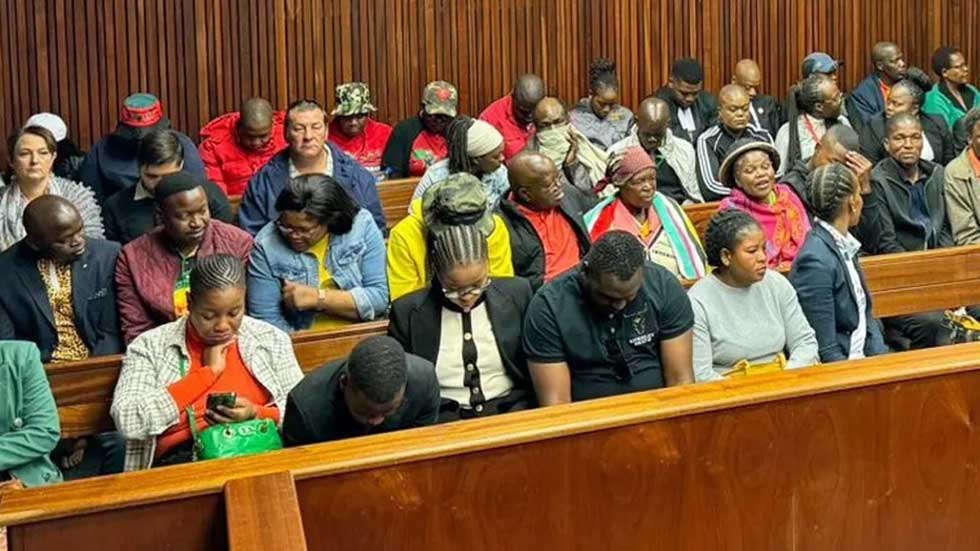AFRICA | Human Pig Feed: The South African Farm Murders That Shocked the World"

A deadly search for discarded dairy products exposes the brutal reality of South Africa's rural racial tensions
The August heat was oppressive in Limpopo's Sebayeng district when Maria Makgato, 45, and Lucia Ndlovu, 34, set out on what should have been a routine scavenging mission. Word had spread through their impoverished community that a Clover dairy truck had dumped expired products at a local pig farm—food that would otherwise rot, but could sustain families living on the margins.
What began as a desperate hunt for sustenance on August 17, 2024, would end in a horror so visceral it has shaken South Africa to its core and reignited the nation's most painful conversations about race, land, and survival.
The two women, searching for soon-to-expire dairy products which had been left for pigs, never made it home. Instead, their bodies were allegedly shot, dumped, and fed to the very animals they had hoped to compete with for scraps.
The grotesque symmetry of this act—Black women reduced to pig feed while searching for pig feed—has become a chilling metaphor for South Africa's unresolved racial trauma.
 Maria Makgato was a single mother of four sons aged between five and 22 years oldThe Horrific Accusations
Maria Makgato was a single mother of four sons aged between five and 22 years oldThe Horrific Accusations

At the center of this nightmare stands Zachariah Johannes Olivier, 60, the white farm owner accused of shooting and killing the two women. But it is the testimony of his alleged accomplice that has provided the most damning—and disturbing—details of what transpired that August evening.
Adrian de Wet, 20, who turned state witness when the trial started on Monday, says farm owner Zachariah Johannes Olivier shot and killed the two women. More chilling still, De Wet, a supervisor on the farm, will testify that he was under duress when he was forced to throw their bodies into the pig enclosure, according to both prosecutors and his defense team.
The young man's decision to cooperate with authorities in exchange for dropped charges has provided investigators with an insider's account of alleged premeditated murder and cover-up.
The women weren't alone that night. A 47-year-old foreign national man, who was with them, escaped but was also shot and hospitalized. This survivor—Ndlovu's husband—managed to crawl away from the scene and later provided crucial testimony that led police to the discovery of the decomposed bodies of the women "in a pigsty on a farm in Sebayeng, outside Mankweng," on August 20, 2024.
 Farm owner Zachariah Johannes Olivier, 60, and his employees Adrian de Wet, 19, and William Musora, 50,The Legal Battle Unfolds
Farm owner Zachariah Johannes Olivier, 60, and his employees Adrian de Wet, 19, and William Musora, 50,The Legal Battle Unfolds

The case has mobilized South Africa's justice system in ways that transcend typical criminal proceedings. Three men face murder charges: Olivier, De Wet, and William Musora, 50, another farm worker.
The men also face charges of attempted murder for shooting at Ms Ndlovu's husband, who was with the women at the farm - as well as possession of an unlicensed firearm and obstructing justice for allegedly dumping the bodies in the pig enclosure in an attempt to conceal evidence.
Musora, a Zimbabwean national, faces an additional charge under South Africa's Immigration Act over his status as an illegal immigrant. His presence in the case highlights another layer of South Africa's complex social dynamics—the tensions between local Black South Africans and foreign nationals competing for the same scarce economic opportunities.
If the court accepts De Wet's testimony, all charges against him will be dropped. This prosecutorial strategy has drawn both praise for potentially securing crucial evidence and criticism for potentially allowing a key participant in alleged murder to escape justice.
The legal proceedings have been postponed multiple times, with the trial now set to continue as the nation watches. The case was postponed to 7 August 2025, with the trial set to start on 11 August, giving legal teams more time to prepare for what promises to be one of South Africa's most closely watched trials.
South Africa's Racial Powder Keg
The Limpopo pig farm murders have erupted against a backdrop of simmering racial tensions that apartheid's end in 1994 failed to fully resolve. Such tension is especially rife in rural areas, despite the end of the racist system of apartheid more than 30 years ago.
Most private farmland remains in the hands of the white minority, while most farm workers are black and poorly paid, fuelling resentment among the black population.
The Limpopo High Court was packed with supporters and relatives of the victims ahead of proceedings. Also present was Mr Olivier's wife, who was seated in the front row of the public gallery and could be seen wiping away tears.

Members of opposition party Economic Freedom Fighters, which has previously called for the farm to be shut down, were also present in the courtroom. The EFF's presence signals how quickly criminal cases can become political flashpoints in contemporary South Africa, particularly when they involve allegations of racial violence.
Political parties have not remained silent. The PAC's secretary general Appa Pooe has called on Land Reform and Rural Development Minister Mzwanele Nyhontso to look into the possibility of taking control or expropriating the farmland of alleged murderer Zachariah Johannes Olivier.
Such calls reflect broader demands for land redistribution that remain unresolved three decades after democracy.
The Broader Pattern of Violence
While this case has captured national attention, it reflects broader patterns of violence that plague South Africa. Violent crime is rife in the southern African nation of just over 60 million people, where nearly 20,000 murders were recorded between April and December last year.
Farm murders, involving both White and Black South Africans, make up a small part, about 0.2% of those killings.
Yet the symbolic power of this particular case transcends statistics. The image of women killed while searching for food, their bodies allegedly fed to pigs, has crystallized decades of accumulated grievances about economic inequality, racial injustice, and the dehumanization that persists in post-apartheid South Africa.
Justice and Consequences
As the trial proceeds, relatives of the victims seek not just legal justice but a reckoning with the conditions that led two women to risk their lives for discarded dairy products. The case has become a test of South Africa's commitment to equal justice and its ability to confront the rural inequalities that continue to fuel racial tensions.
The Limpopo pig farm murders may have started with hunger, but they have exposed a society still struggling to feed its conscience. Whether justice will be served—and whether it will help heal or further divide the nation—remains to be seen as South Africa confronts yet another chapter in its ongoing struggle with the ghosts of its racist past.
-30-
